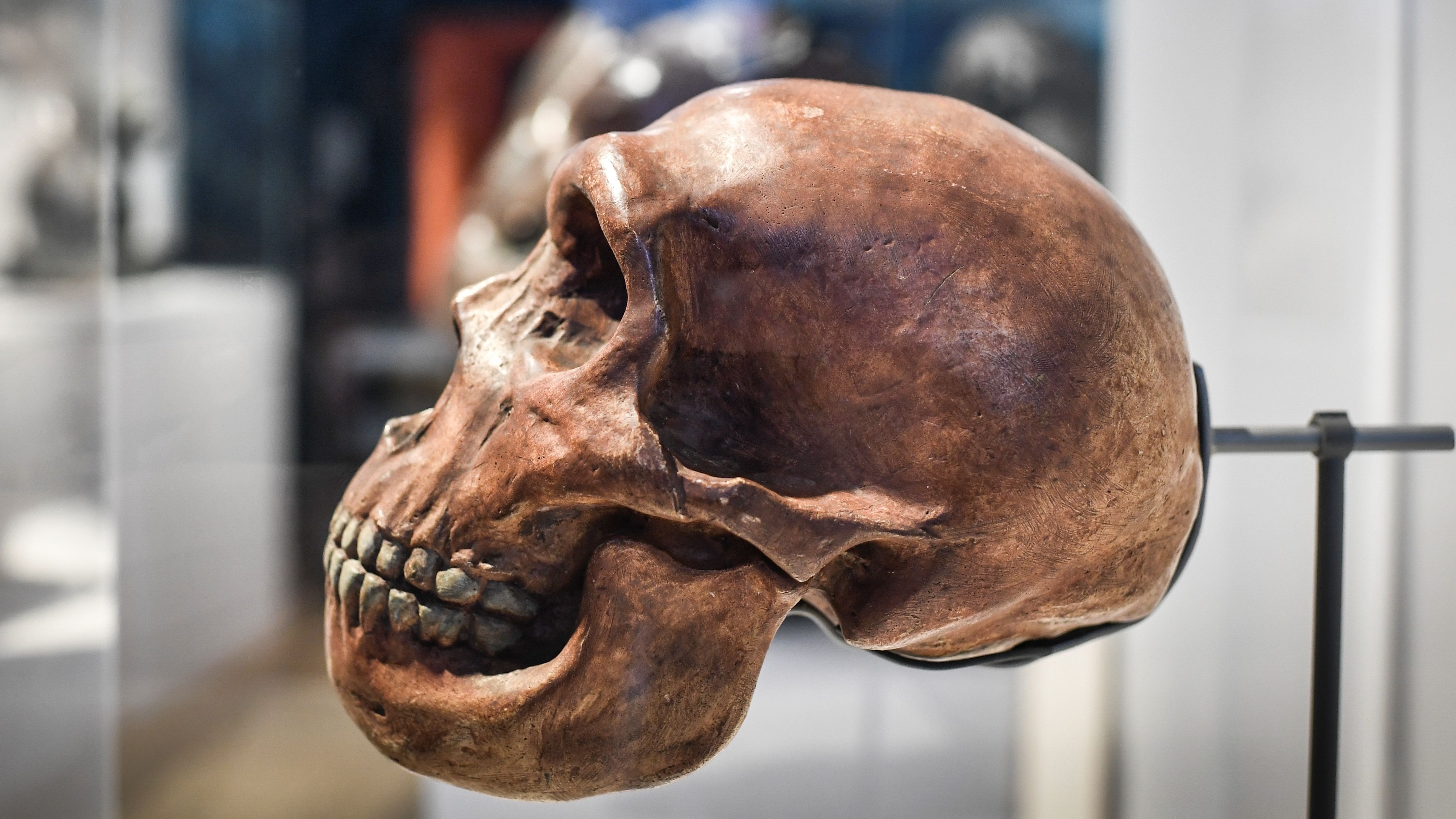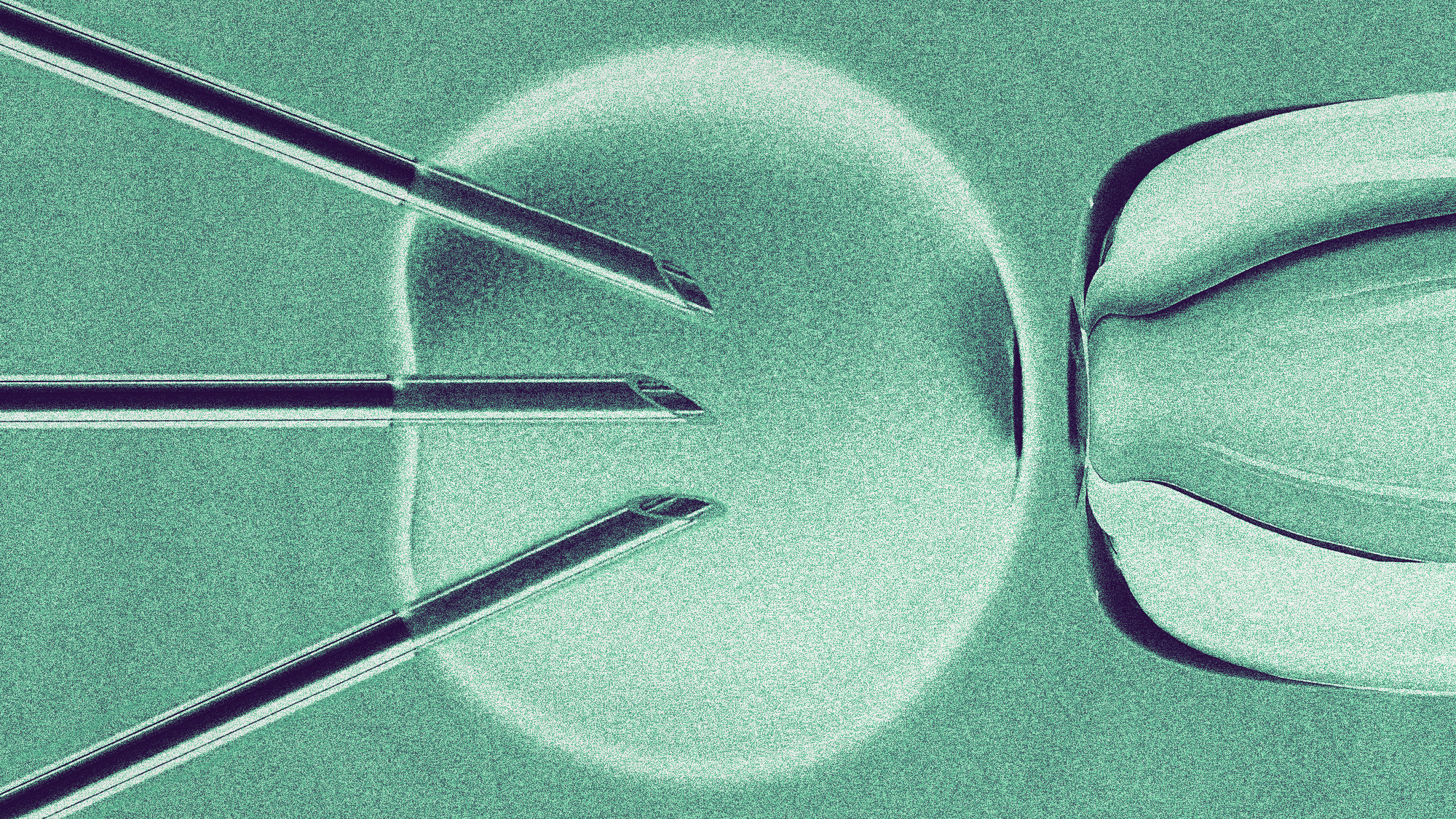Neanderthal genes linked to severe Covid-19 symptoms
Discovery may explain why some regions have been harder hit by coronavirus

A free daily email with the biggest news stories of the day – and the best features from TheWeek.com
You are now subscribed
Your newsletter sign-up was successful
Genes passed down from our Neanderthal ancestors may increase our risk of contracting a more severe form of Covid-19, a study has concluded.
The research, published in Nature, suggests that a gene thought to triple an infected individual’s chance of developing serious coronavirus symptoms was passed on by Neanderthals more than 50,000 years ago.
Around 16% of Europeans and 50% of South Asians currently carry the gene.
The Week
Escape your echo chamber. Get the facts behind the news, plus analysis from multiple perspectives.

Sign up for The Week's Free Newsletters
From our morning news briefing to a weekly Good News Newsletter, get the best of The Week delivered directly to your inbox.
From our morning news briefing to a weekly Good News Newsletter, get the best of The Week delivered directly to your inbox.
The DNA strand, found on chromosome 3, was discovered by Swedish and German scientists comparing genetic data from seriously ill Covid-19 patients with that of 50,000-year-old Neanderthal skeletons found in Croatia and Siberia, CNN reports.
“It turns out that this gene variant was inherited by modern humans from the Neanderthals when they interbred some 60,000 years ago,” Hugo Zeberg, co-author of the study, said.
“Today, the people who inherited this gene variant are three times more likely to need artificial ventilation if they are infected by the novel coronavirus.”
About 2% of all DNA found in European and Asian populations can be traced back to the now-extinct humanoid species, but it is almost completely absent in African populations.
A free daily email with the biggest news stories of the day – and the best features from TheWeek.com
The six-gene cluster at the centre of the study was found to be most prevalent in Bangladesh, “where 63% of the population carry at least one copy of the sequence”, The New York Times says.
The strand “may account in part for why people of Bangladeshi descent are dying at a high rate of Covid-19 in the United Kingdom”, the paper adds.
Svante Paabo, who also worked on the study, has posited that around 100,000 “additional” coronavirus deaths have so far occurred as a result of the now-extinct humanoid’s genetic code.
“The genes in this region may well have protected the Neanderthals against some other infectious diseases that are not around today” Paabo said. “And now when we are faced with the novel coronavirus these Neanderthal genes have these tragic consequences.”
Despite the breakthrough, the precise feature of Neanderthal DNA that causes the increase in risk is currently unknown, which has led experts to warn against jumping to conclusions.
“Covid-19 is a complex disease, the severity of which has been linked to age, gender, ethnicity, obesity, health, virus load among other things” University College London Professor Mark Maslin told The Guardian.
“Lots of different populations are being severely affected, many of which do not have any Neanderthal genes,” Maslin added. “We must avoid simplifying the causes and impact of Covid-19.”
-
 How the FCC’s ‘equal time’ rule works
How the FCC’s ‘equal time’ rule worksIn the Spotlight The law is at the heart of the Colbert-CBS conflict
-
 What is the endgame in the DHS shutdown?
What is the endgame in the DHS shutdown?Today’s Big Question Democrats want to rein in ICE’s immigration crackdown
-
 ‘Poor time management isn’t just an inconvenience’
‘Poor time management isn’t just an inconvenience’Instant Opinion Opinion, comment and editorials of the day
-
 A Nipah virus outbreak in India has brought back Covid-era surveillance
A Nipah virus outbreak in India has brought back Covid-era surveillanceUnder the radar The disease can spread through animals and humans
-
 Covid-19 mRNA vaccines could help fight cancer
Covid-19 mRNA vaccines could help fight cancerUnder the radar They boost the immune system
-
 The new Stratus Covid strain – and why it’s on the rise
The new Stratus Covid strain – and why it’s on the riseThe Explainer ‘No evidence’ new variant is more dangerous or that vaccines won’t work against it, say UK health experts
-
 RFK Jr. vaccine panel advises restricting MMRV shot
RFK Jr. vaccine panel advises restricting MMRV shotSpeed Read The committee voted to restrict access to a childhood vaccine against chickenpox
-
 Babies born using 3 people's DNA lack hereditary disease
Babies born using 3 people's DNA lack hereditary diseaseUnder the Radar The method could eliminate mutations for future generations
-
 RFK Jr. scraps Covid shots for pregnant women, kids
RFK Jr. scraps Covid shots for pregnant women, kidsSpeed Read The Health Secretary announced a policy change without informing CDC officials
-
 New FDA chiefs limit Covid-19 shots to elderly, sick
New FDA chiefs limit Covid-19 shots to elderly, sickspeed read The FDA set stricter approval standards for booster shots
-
 RFK Jr.: A new plan for sabotaging vaccines
RFK Jr.: A new plan for sabotaging vaccinesFeature The Health Secretary announced changes to vaccine testing and asks Americans to 'do your own research'